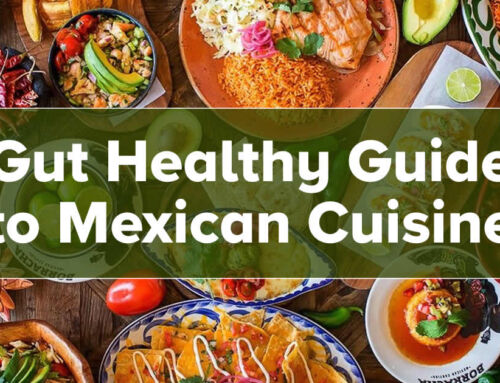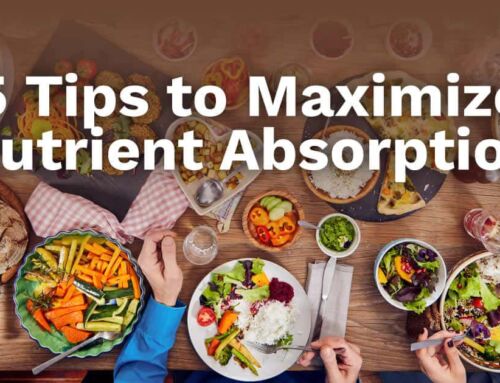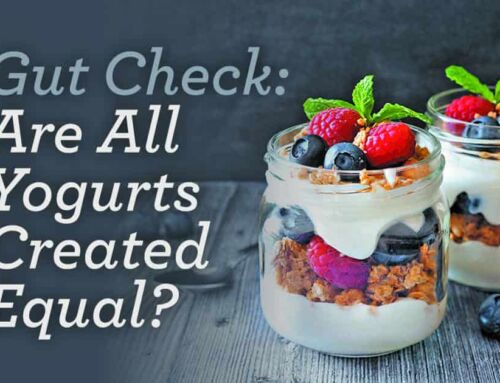Did you know, there are trillions of bacteria creeping in every little nook and cranny in your digestive tract? There’s bacteria in your gut.
Sounds disgusting, doesn’t it? That’s because we’re conditioned to believe bacteria is bad. Chances are you over clean your house and wash your hands constantly. In the US, we wage war on germs – but this is a big mistake because bacteria isn’t always bad for you.
Your gut microbiome is a fascinating ecosystem of bacteria that works to improve many aspects of your health. When it isn’t functioning well, complications can arise. Probiotics are marketed as a quick fix to get your gut back to normal. But if it was that easy to cure gut issues, we’d all be taking them.
I’ve written my thoughts on probiotics, but I now want to give you a gastroenterologist’s perspective on prebiotics. After all, my patients with different gastrointestinal concerns ask me about different prebiotic supplements, and I feel there is a lot of misinformation out there. Ultimately, I want to help you make an informed choice.
What Are Probiotics and Postbiotics?
Before diving into prebiotics, let’s touch on probiotics and postbiotics.
Your gastrointestinal tract is home to millions of microbes, known as your gut microbiota. Their collection of genes, which affect your health in various ways, are your gut microbiome. Your gut microbiome evolves throughout your life, and the microbes play a part in metabolizing certain foods – producing vitamins and amino acids, and converting indigestible carbohydrates into energy. These bacteria also protects your gut wall.
Usually, your gut microflora is fairly stable, and there is a balance between the loosely-termed ‘good’ and ‘bad’ bacteria. When homeostasis is threatened however, complications may occur. Probiotics are marketed as a quick and easy way to replenish the good bacteria in your gut, by ingesting particular strains.
Many patients turn to probiotics in an attempt to regain control of their digestion. I previously wrote about how probiotics can be beneficial, but that I prefer my patients to supplement probiotics through food. Certainly, they are an option I offer to many patients, as I prefer to monitor their use, with the option to discontinue after a few weeks if I see no improvement to their digestion.
Postbiotics are the compounds created by the friendly bacteria in your gut microbiome, which your body then uses. The intention of taking these compounds as a supplement is that you bypass the whole gut microbiome system and benefit more directly from the nutrients and amino acids. I believe this method ignores the health of your gut outright, and that it’s far more effective to heal your gut and body through diet and lifestyle changes, allowing your gut microbiome to flourish naturally.
What Conditions May Improve If I Supplement With Prebiotics?
Prebiotics are foods and nutrients that, while indigestible for humans, are consumed by your good bacteria in order to thrive. In other words, embracing a prebiotic-rich diet has the potential to influence your gut microbiome for the better – provided you’re not on a course of antibiotics (which kill off all gut flora) and you make sure you eat these foods regularly.
I can’t stress enough that prebiotics are not a magical cure for gastrointestinal conditions, but they may encourage your gut flora to flourish. Prebiotics are something to consider as part as an overall plan for your health and diet, not as a quick-fix.
That being said, I’ve had many patients experience relief in following conditions:
- Diarrhea – Daily consumption of prebiotics may inhibit the Clostridium bacteria, often responsible for diarrhea. But there are many different strains of bacteria that can be the cause, so there is no guarantee of a diarrhea-free life if you take prebiotics every day. To better understand when to see a doctor and common causes, please visit my webpage on diarrhea.
- IBS (Irritable bowel disease) – A specific trans-galactooligosaccharide prebiotic was used in a trial to alleviate symptoms in IBS patients. However, prebiotics can cause gastrointestinal side effects – so they’re not suitable for all IBS sufferers. Please visit the IBS page I’ve created to learn more about this condition.
- Crohn’s Disease – The fructo-oligosaccharide form of prebiotic can reduce the symptoms of Crohn’s disease, but results of other studies contradict these findings.
Ultimately, more research is needed on the different types of prebiotics against multiple gastrointestinal diseases. Only with more evidence would I feel comfortable recommending prebiotic supplements to the majority of my patients with long-term gastrointestinal conditions.
What Is A Natural Prebiotic?
If you’re considering trying prebiotics to see if they reduce your gastrointestinal symptoms, I favor the prebiotics found in foods over a supplement form. These are the best prebiotics, because chances are you already eat many of these foods. You just have to make small changes to your diet in order to eat prebiotic foods every day. By embracing natural prebiotics, you also avoid buying expensive supplements, and you benefit from the vitamins and antioxidants that many of these foods also contain.
To increase your prebiotic intake naturally, I recommend the following:
Foods containing the prebiotic inulin –
- Chicory
- Asparagus
- Banana (contains 17g sugar)
- Garlic
- Leek
- Onion
- Jerusalem artichoke
- Burdock
- Dandelion root
- Yacon root
- Jicama root
Foods containing the prebiotic beta-glucan –
- Barley
- Oats
- Shiitake and Oyster mushrooms
Foods containing the prebiotic pectin –
- Apple (contains 23g sugar)
- Pear (contains 16g sugar)
- Orange (contains 12g sugar)
- Plum (contains 6.5g sugar)
- Peach (contains 14g sugar)
- Apricot (contains 3.25g sugar)
Foods containing the prebiotic glucomannan fiber –
- Konjac root
- Rye
- Beans
Foods containing the prebiotic flavanol –
- Cocoa and high-quality dark chocolate
- Green tea
A GI Doctor’s Thoughts on Prebiotics and Gut Health
I recommend monitoring your fruit intake carefully to begin with, as many of my patients respond better to a low sugar diet, as sugar can trigger IBS or worsen the effects of other gastrointestinal issues. The key to most diets is balance – you won’t see any benefits if you eat several prebiotic foods one day, and none the next.
Overall, prebiotics have not been examined in great depth, and results in studies, and for my own patients, have been mixed. Nonetheless, foods containing prebiotics could be an inexpensive way of improving your gut health.
If you’re struggling with painful and embarrassing digestive symptoms, and looking for an expert gastroenterologist in the San Antonio Texas area, call 210-615-8308 to make an appointment to see Dr. Havranek – or fill out our appointment request form.



